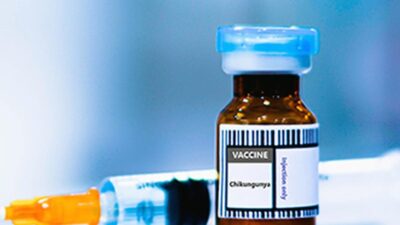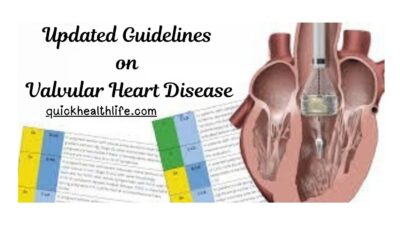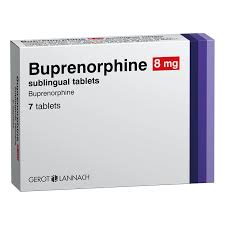Understanding Life After Cancer Treatment
Completing cancer treatment is a major milestone, but it’s not the end of the journey. Many survivors describe the post-treatment phase as entering a “new normal” – a life that looks different from before diagnosis. Your body has been through significant trauma from treatments like chemotherapy, radiation, and surgery. Common long-term effects include:
- Cancer-related fatigue that doesn’t improve with rest
- Chemo brain – memory and concentration problems
- Neuropathy (nerve damage) in hands and feet
- Emotional challenges including anxiety about recurrence
- Changes in body image and self-esteem
The good news? Research shows that specific lifestyle changes can significantly improve your quality of life and may reduce recurrence risk by up to 30-50% for some cancers.
Table of Contents
Myth vs Fact: Separating Truth from Fiction
Myth 1: “Once treatment ends, you can return to your old lifestyle”
Fact: Your body has changed permanently. Lasting effects require lasting changes. Adopting healthy habits helps manage long-term side effects and reduces recurrence risk.
Myth 2: “Exercise is dangerous for survivors”
Fact: Unless your doctor restricts it, appropriate exercise is one of the most beneficial things you can do. It reduces fatigue, improves mood, and may lower recurrence risk.
Myth 3: “Diet doesn’t matter after beating cancer”
Fact: Nutrition plays a crucial role in recovery. Certain foods can reduce inflammation, support immune function, and help manage treatment side effects.
Myth 4: “Mental health is separate from physical recovery”
Fact: Emotional well-being directly impacts physical health. Stress, anxiety and depression can weaken immune function and hinder recovery.
Myth 5: “Supplements can replace a healthy diet”
Fact: Whole foods contain thousands of beneficial compounds that supplements can’t replicate. Focus on food first, supplements only as needed.

Essential Lifestyle Changes for Cancer Survivors
1. Nutrition: Building a Cancer-Preventive Plate
What you eat after cancer treatment can significantly impact your recovery and long-term health.
| Food Group | Benefits | Examples |
|---|---|---|
| Colorful Vegetables | Antioxidants, anti-inflammatory | Broccoli, carrots, tomatoes, leafy greens |
| Fruits | Vitamins, fiber, antioxidants | Berries, citrus, apples, pomegranates |
| Lean Proteins | Tissue repair, immune function | Fish, poultry, legumes, tofu |
| Whole Grains | Fiber, energy, gut health | Oats, quinoa, brown rice, whole wheat |
| Healthy Fats | Reduce inflammation, brain health | Avocado, nuts, olive oil, fatty fish |
Practical tip: Fill half your plate with vegetables and fruits, one-quarter with lean protein, and one-quarter with whole grains.
2. Movement: Exercise as Medicine
Physical activity addresses multiple challenges survivors face:
- Reduces fatigue by improving energy production at cellular level
- Improves mood through endorphin release
- Maintains muscle mass lost during treatment
- May reduce recurrence risk by regulating hormones and inflammation
Safe exercise guidelines:
- Start slow: 10-15 minutes daily, gradually increase
- Mix it up: cardio, strength training, flexibility
- Listen to your body: rest when needed
- Consult your oncology team before starting
3. Mental Health: Healing the Whole Person
Emotional recovery is as important as physical healing.
Strategies that work:
- Mindfulness meditation: Reduces anxiety and improves sleep
- Support groups: Connect with others who understand
- Therapy: Professional help for trauma, anxiety, depression
- Journaling: Process emotions and track progress
- Gratitude practice: Shift focus from fear to appreciation
4. Sleep: The Foundation of Healing
Quality sleep is when your body repairs itself.
For better sleep:
- Establish a consistent sleep schedule
- Create a dark, cool, quiet sleep environment
- Avoid screens 1 hour before bed
- Limit caffeine after noon
- Try relaxation techniques before bed
FAQ Common Questions from Cancer Survivors
Q: How soon after treatment should I start making these changes?
A: Start as soon as you feel able, even during treatment if possible. Begin with small, manageable changes and build gradually. Always consult your healthcare team.
Q: Which lifestyle change has the biggest impact on reducing recurrence risk?
A: Research suggests maintaining a healthy weight through diet and exercise may have the strongest evidence for reducing recurrence risk, especially for breast, prostate and colorectal cancers.
Q: Are there any foods I should completely avoid?
A: Limit processed meats, sugary foods and drinks, refined carbohydrates, and alcohol. Focus on what to include rather than what to exclude.
Q: How can I manage cancer-related fatigue?
A: Paradoxically, appropriate physical activity is one of the most effective treatments for cancer-related fatigue. Also prioritize sleep, manage stress, and eat energy-supporting foods.
Q: When should I worry about cancer recurrence anxiety?
A: Some anxiety is normal. Seek professional help if it: prevents you from enjoying life, interferes with daily functioning, causes panic attacks, or persists for most days over several weeks.
Creating Your Survivorship Care Plan
Work with your healthcare team to develop a personalized plan that includes:
- Schedule for follow-up appointments and scans
- Management of long-term treatment side effects
- Screening for other health issues
- Specific lifestyle recommendations for your cancer type
- Resources for emotional and practical support



